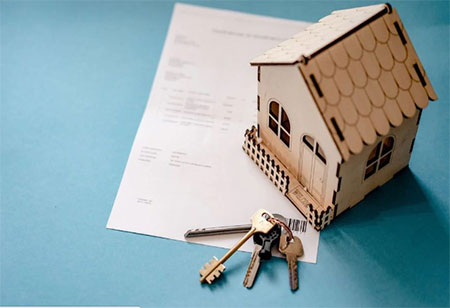Model Builder-Buyer Agreement to Simplify The Home Buying Process
By John Cater, content writer
 Sales of houses in India will grow at 9% year-on-year for the period 2023-2024. India Ratings and Research indicate that the momentum will continue given the stable and hea- lthy demand. While global inflation and global rec- ession will dampen dem- and, supply is expected to consolidate, and afford- ability will improve tipping the balance. However, bu- ying a house in the co- untry can become quite burdensome because of the lengthy process and paperwork. To improve buyer protection, Prime Minister Modi’s government plans to set up a committee that will work on a model buyer agreement to streamline the procedure.
Sales of houses in India will grow at 9% year-on-year for the period 2023-2024. India Ratings and Research indicate that the momentum will continue given the stable and hea- lthy demand. While global inflation and global rec- ession will dampen dem- and, supply is expected to consolidate, and afford- ability will improve tipping the balance. However, bu- ying a house in the co- untry can become quite burdensome because of the lengthy process and paperwork. To improve buyer protection, Prime Minister Modi’s government plans to set up a committee that will work on a model buyer agreement to streamline the procedure.
Regulatory Authority Protects Consumers
The real estate sector in India has undergone several regulatory changes to promote the interests of homebuyers and promote transparency in the industry. As a refresher, the Real Estate (Regulation and Development) Act of 2016 or RERA was introduced in 2016 to regulate the real estate sector and establish a mechanism to address grievances. Under the RERA, developers are mandated to register their projects with the regulatory authority, disclose project-related information, and enter into a written agreement with buyers or create the builder-buyer agreement.
A year after the RERA was passed by the Indian Parliament and enacted into law, builders were also required to give 5 years of warranty against structural flaws. Home warranties that may be offered by different providers have several advantages for homeowners, providing a sense of security, and financial protection against unplanned repair and replacement costs. For instance, warranties can cover older systems and appliances while newer homes are protected from structural problems or poor quality construction. Depending on the terms laid out in the buyer builder agreement, the warranty may also address construction defects that are related to doors, windows, flooring, paintwork, plumbing, and electrical work. Developers will be obliged to address defects as reported by homeowners during the warranty period. For residential complexes, developers may ensure that common facilities like elevators, gyms, swimming pools, and other shared spaces are well-maintained during the specified period.
Streamlining the Homebuying Process
The number of backlogs specific to the housing sector is staggering at more than 54,000 cases. This reflects the importance of simplifying the process of purchasing a house. From applying for a loan and getting a home loan sanction letter to transferring the title of the property and registering the sale deed, the procedure can become stressful and tiresome. To make things easier, the government has decided to create a committee that will be tasked to develop a model buyer agreement. According to Rohit Kumar Singh of the Consumer Affairs Ministry, the committee will be made up of members drawn from a pool of judges, consumer bodies, lawyers, and members of national and state consumer commissions including representatives of the ministry. The aim of the model contract is to create a standardized and uniform contract across all states in the country to fix possible conflicts meaningfully between homebuyers and developers.
The model agreement will, hopefully, protect the interests of buyers and improve the efficiency of the home purchase process. Furthermore, it can save time and money as well as enhance market activity and consumer confidence.




